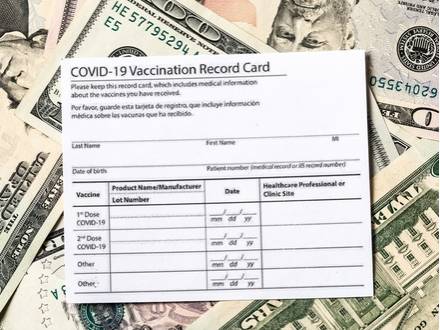Recent Blog Posts
Supreme Court Ruling Narrows Federal Bribery Laws
 Conspiracy to bribe charges of a former Illinois House Speaker by four former lobbyists and executives from ComEd resulted in convictions, yet now the four are asking a judge to dismiss all charges. The conviction for bribery involved a scheme to arrange high-paying jobs and no-work contracts for friends of the Illinois House Speaker in exchange for assistance with favorable legislation.
Conspiracy to bribe charges of a former Illinois House Speaker by four former lobbyists and executives from ComEd resulted in convictions, yet now the four are asking a judge to dismiss all charges. The conviction for bribery involved a scheme to arrange high-paying jobs and no-work contracts for friends of the Illinois House Speaker in exchange for assistance with favorable legislation.
In June 2024, SCOTUS issued a ruling that significantly narrowed the scope of federal anti-corruption laws. Following that ruling, a bribery conviction for a former Indiana Mayor was overturned. In the wake of the ruling, the four Illinois executives are now asking to be acquitted of all the charges, have the case dismissed, or be granted a new trial.
The attorneys for the defendants say the case is fatally flawed and was built on invalid theories. State prosecutors have until October 15 to respond to the defense team's motion. If you have been charged with the federal crime of bribery, you should know that the offense carries harsh sentences, including hefty fines and lengthy jail sentences. Having a skilled Naperville, IL criminal defense attorney experienced in federal crimes can make the difference in the outcome of the charges.
New Illinois Law Encouraging Juvenile Record Expungement
 It is no surprise that people often regret things they did in their youth. Nobody is perfect, and all people make mistakes, which is true for adolescents. While they may be going through their rebellious stage, their actions can have serious consequences, including convictions and a criminal background. Fortunately, requesting that your juvenile charges be expunged from the record is possible. The state of Illinois recently passed a new law aimed at easing the entire expungement application process, with the understanding that you should not need to keep getting punished for a crime that you have already paid the price for committing. If you have questions about getting your juvenile record expunged, speak with a knowledgeable Naperville, IL, criminal defense attorney.
It is no surprise that people often regret things they did in their youth. Nobody is perfect, and all people make mistakes, which is true for adolescents. While they may be going through their rebellious stage, their actions can have serious consequences, including convictions and a criminal background. Fortunately, requesting that your juvenile charges be expunged from the record is possible. The state of Illinois recently passed a new law aimed at easing the entire expungement application process, with the understanding that you should not need to keep getting punished for a crime that you have already paid the price for committing. If you have questions about getting your juvenile record expunged, speak with a knowledgeable Naperville, IL, criminal defense attorney.
How Does Expungement Work in Illinois?
When a minor gets arrested for criminal activity, they have a criminal record that can impede his or her future. Any opportunity they try to grasp - whether it is a school, job, housing, or romantic partner - can be taken away once someone discovers they have a criminal record from a mistake he or she made in his or her youth. In Illinois, there are a few possibilities for getting your record expunged, which means it would be as if it never existed.
COVID Fraud and Prison Sentences in Illinois
 As the world began understanding the debilitating effects that the COVID-19 pandemic was having globally, the U.S. Government got to work creating economic support for people whose finances were harmed. Unemployed individuals, small businesses, and companies received hundreds of billions of dollars to encourage the economy and keep it from collapsing. This aid was set aside for people who needed it, but over $8 billion in relief fraud was discovered, triggering the creation of a federal task force to address it. To date, over 3,500 people have been charged and over 400 civil lawsuits filed about this. Unfortunately, given the motivation to stop COVID fraud, many innocent people who truly needed economic relief have been caught in the middle and are facing charges, too. Since COVID fraud includes federal offenses like wire fraud, bank fraud, and disaster assistance fraud, the consequences can be severe. If you have been accused of COVID fraud, ask a qualified Naperville, IL criminal defense lawyer for guidance.
As the world began understanding the debilitating effects that the COVID-19 pandemic was having globally, the U.S. Government got to work creating economic support for people whose finances were harmed. Unemployed individuals, small businesses, and companies received hundreds of billions of dollars to encourage the economy and keep it from collapsing. This aid was set aside for people who needed it, but over $8 billion in relief fraud was discovered, triggering the creation of a federal task force to address it. To date, over 3,500 people have been charged and over 400 civil lawsuits filed about this. Unfortunately, given the motivation to stop COVID fraud, many innocent people who truly needed economic relief have been caught in the middle and are facing charges, too. Since COVID fraud includes federal offenses like wire fraud, bank fraud, and disaster assistance fraud, the consequences can be severe. If you have been accused of COVID fraud, ask a qualified Naperville, IL criminal defense lawyer for guidance.
Important Developments in Federal Gun Safety Laws
 Gun laws can be difficult to keep track of. Many legal measures are in place to protect American citizens’ right to bear arms, which was established in the Second Amendment of the U.S. Constitution. There are other protections in place aimed at restricting people’s access to guns for the sake of public safety. Not only is it confusing because these two objectives tend to be at odds with each other, but laws in both directions keep changing. That means that you might find yourself facing criminal charges without realizing you did anything wrong. In 2022, President Biden signed a gun safety law that has recently taken effect. Recent numbers claim that over 500 cases of federal weapons charges have resulted. If you want to learn more about the implications of gun law development, speak with a knowledgeable Naperville, IL criminal defense lawyer.
Gun laws can be difficult to keep track of. Many legal measures are in place to protect American citizens’ right to bear arms, which was established in the Second Amendment of the U.S. Constitution. There are other protections in place aimed at restricting people’s access to guns for the sake of public safety. Not only is it confusing because these two objectives tend to be at odds with each other, but laws in both directions keep changing. That means that you might find yourself facing criminal charges without realizing you did anything wrong. In 2022, President Biden signed a gun safety law that has recently taken effect. Recent numbers claim that over 500 cases of federal weapons charges have resulted. If you want to learn more about the implications of gun law development, speak with a knowledgeable Naperville, IL criminal defense lawyer.
What Counts as Criminal Counterfeiting?
 Counterfeiting is a serious crime that involves the creation or distribution of fake items, such as currency, documents, or goods, with the intent to trick others into thinking they are real. These actions are not only illegal but can also lead to severe consequences, especially when federal laws are violated.
Counterfeiting is a serious crime that involves the creation or distribution of fake items, such as currency, documents, or goods, with the intent to trick others into thinking they are real. These actions are not only illegal but can also lead to severe consequences, especially when federal laws are violated.
If you or someone you know is facing state or federal counterfeit criminal charges, it is crucial to get help from an attorney as soon as possible. Contacting a knowledgeable Naperville, IL federal criminal defense attorney is the first step in protecting your rights and building a strong defense against these charges.
What Behaviors Can Lead to Counterfeiting Charges?
Counterfeiting covers a wide range of activities that can lead to criminal charges. Some of the behaviors that can result in counterfeiting charges include:
Could I Be Prosecuted Under the Home Repair Fraud Act? | IL
 In 2010, Illinois passed a new law called the Home Repair Fraud Act that is intended to work hand-in-hand with the Consumer Fraud and Deceptive Practices Act to help homeowners targeted by allegedly dishonest contractors. Consumers who say they paid for poor-quality work, work they never received, or work that was only partly completed can pursue action against the responsible person and that person can face serious penalties. If you are a contractor, repairman, tiler, concrete layer, or any other home repair professional and are accused of unfair or illegal behavior, hire an Illinois criminal defense attorney right away.
In 2010, Illinois passed a new law called the Home Repair Fraud Act that is intended to work hand-in-hand with the Consumer Fraud and Deceptive Practices Act to help homeowners targeted by allegedly dishonest contractors. Consumers who say they paid for poor-quality work, work they never received, or work that was only partly completed can pursue action against the responsible person and that person can face serious penalties. If you are a contractor, repairman, tiler, concrete layer, or any other home repair professional and are accused of unfair or illegal behavior, hire an Illinois criminal defense attorney right away.
What is the Home Repair Fraud Act?
The Home Repair Fraud Act covers a wide variety of the most common contractor and home repair practices that are considered fraudulent or unfair. People violate the Act and engage in home repair fraud when they knowingly enter into a contract or agreement, whether orally or in writing, and:
Deepfake Pornography and the DEFIANCE Act
 AI technology is developing and spreading fast. There are so many computer-generated images out there that it can be hard at times to know what is authentic and what is not. A fairly recent trend involves using "deepfakes" to create pornographic content. That means that a real person’s voice and face are manipulated to seem like they are engaged in sexually explicit behavior when they are not.
AI technology is developing and spreading fast. There are so many computer-generated images out there that it can be hard at times to know what is authentic and what is not. A fairly recent trend involves using "deepfakes" to create pornographic content. That means that a real person’s voice and face are manipulated to seem like they are engaged in sexually explicit behavior when they are not.
With questions arising about consent, privacy, and freedom of expression, emerging laws are criminalizing some of these practices. If you use AI technology to produce videos and images, make sure to contact a knowledgeable Naperville, IL criminal defense attorney who can explain developing laws and help you avoid accidentally violating them.
What is the DEFIANCE Act?
A fairly new act has been introduced to regulate how manipulated images, or deepfakes, are used in pornographic content. Known as the Disrupt Explicit Forged Images and Non-Consensual Edits Act of 2024, or the DEFIANCE Act, this piece of legislation is focused on criminalizing the production, distribution, and possession of deepfake pornography if the person depicted in it has not given their consent for their likeness to be used in it.
Domestic Violence, Orders of Protection, and Gun Restrictions
 Rights groups in Illinois say that domestic violence deaths increased more than 110 percent in 2023 compared to 2022 and that other types of domestic violence are increasing as well. In response, rights groups are pushing a law that would allow a judge to issue an Order of Protection in response to domestic violence accusations that come along with a search warrant, giving police officers four days to search someone’s house and take that person’s weapons. In light of a recent Supreme Court decision allowing similar laws to be upheld, this law, if passed, would further restrict gun ownership in addition to the other restrictions people under Orders of Protection commonly deal with.
Rights groups in Illinois say that domestic violence deaths increased more than 110 percent in 2023 compared to 2022 and that other types of domestic violence are increasing as well. In response, rights groups are pushing a law that would allow a judge to issue an Order of Protection in response to domestic violence accusations that come along with a search warrant, giving police officers four days to search someone’s house and take that person’s weapons. In light of a recent Supreme Court decision allowing similar laws to be upheld, this law, if passed, would further restrict gun ownership in addition to the other restrictions people under Orders of Protection commonly deal with.
If you are served with a protective order in response to accusations of domestic violence, you should have an Illinois criminal defense attorney on your side as soon as possible. Even if you think you may get in even bigger trouble if you fight the charges against you, having an attorney in your corner fighting for your rights could give you more options than you realize.
The Basics of Illinois Juvenile Crime
 A conviction and even an accusation of juvenile crimes can impact a minor for the rest of his or her life. While some crimes that juveniles commit may be nothing more than petty offenses, other crimes can result in major legal consequences and convictions on your child’s record. An experienced Illinois juvenile criminal defense attorney can help you understand the next steps if your child has been charged with a crime.
A conviction and even an accusation of juvenile crimes can impact a minor for the rest of his or her life. While some crimes that juveniles commit may be nothing more than petty offenses, other crimes can result in major legal consequences and convictions on your child’s record. An experienced Illinois juvenile criminal defense attorney can help you understand the next steps if your child has been charged with a crime.
Common Juvenile Crimes
It is important to note that juvenile crimes are those committed by individuals under the age of 18, even though a minor under 18 can potentially be tried as an adult for particularly severe crimes.
The most common types of crimes that juveniles are arrested for in Illinois include the following:
-
Theft – This includes shoplifting, also known as retail theft, and theft crimes can easily increase in severity from misdemeanors to felonies if the stolen property is valuable or the juvenile used force or a weapon while committing the crime.
Can I Go to Jail for Writing a Bad Check?
 While checks are not often used in today’s modern world, people still pay for items with checks from time to time. The practice of writing a bad check, meaning one that is written when there are insufficient funds in an account or a bank account is closed, can be considered a crime in Illinois. Depending on the value of the check, serious legal consequences like jail time may apply.
While checks are not often used in today’s modern world, people still pay for items with checks from time to time. The practice of writing a bad check, meaning one that is written when there are insufficient funds in an account or a bank account is closed, can be considered a crime in Illinois. Depending on the value of the check, serious legal consequences like jail time may apply.
If you are facing charges after writing a bad check, you will need the assistance of a skilled Illinois deceptive practices defense attorney.
Bad Checks and Deceptive Practices – What to Know
Writing a bad check may happen by accident sometimes, but when a person knowingly writes bad checks with the intent to avoid paying for items, he or she may be found guilty of deceptive practices. In Illinois, deceptive practices are typically considered a type of white-collar crime, which is one that is done for financial gain, and you can face criminal charges for writing bad checks.














